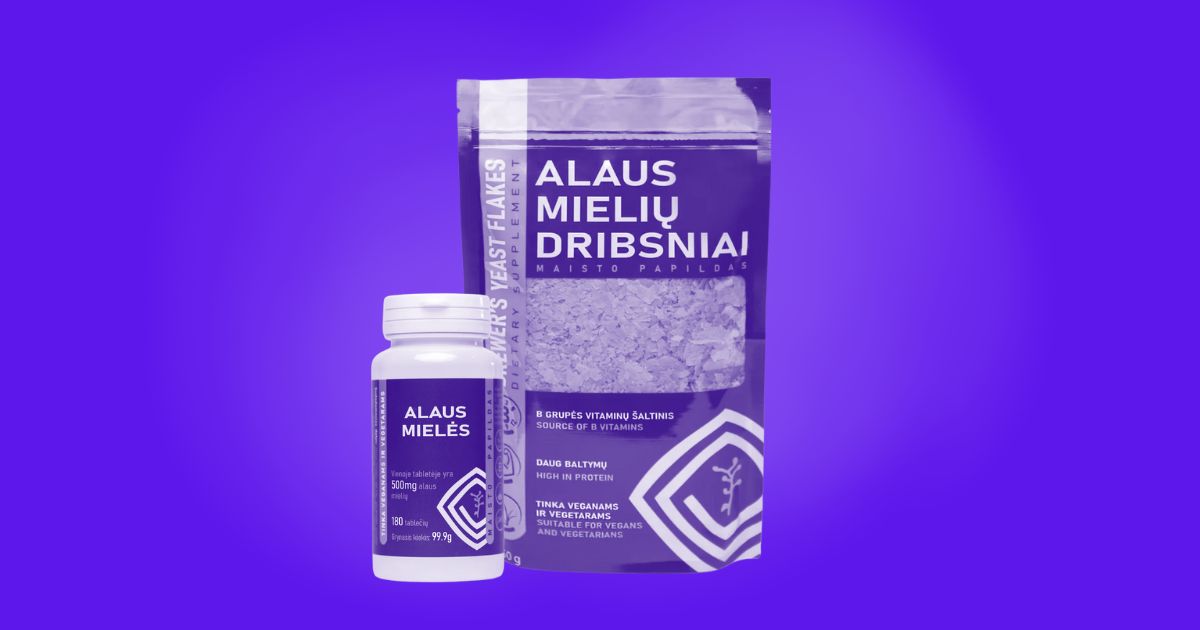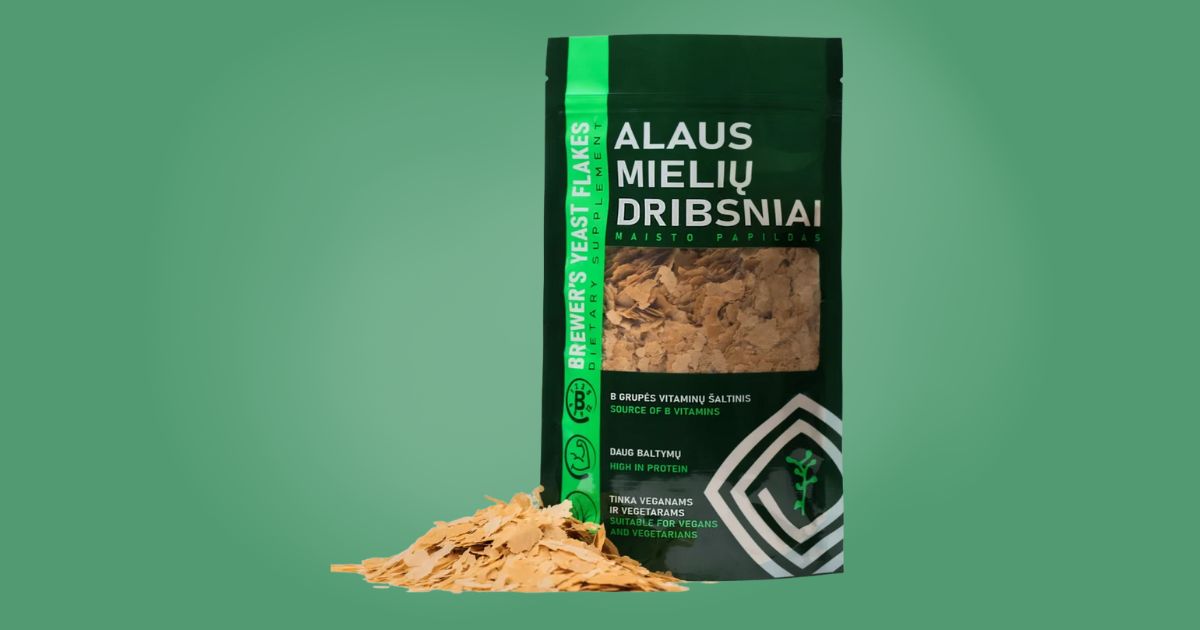Disclaimer:
This article is for informational purposes only and is not a substitute for professional medical advice, diagnosis, or treatment. Always consult your doctor or a qualified health professional before starting any supplement—especially if you are pregnant, have gout/yeast allergies, or take medication.
Brewer’s yeast flakes are a natural product packed with essential nutrients like protein, B vitamins, and minerals. They support energy levels, muscle health, and overall wellness. They offer a simple way to boost nutrition without changing the taste of food.

Many people add brewer’s yeast flakes to meals like cereals, salads, or smoothies to increase their nutrient intake. This natural supplement is especially valued for its clean, chemical-free quality and rich nutrient profile. It works well for those looking to improve their diet with plant-based protein and vitamins.
Because brewer’s yeast flakes provide important minerals such as potassium and magnesium, they also help support muscle function and overall cell health. This makes them an easy and practical addition for anyone interested in maintaining their health through natural nutrition.
What Are Brewer’s Yeast Flakes?
Brewer’s yeast flakes are a form of inactive yeast with a range of nutrients. They come from a specific type of yeast called Saccharomyces cerevisiae. These flakes are commonly used as dietary supplements and cooking ingredients, favored for their nutritional content and ease of use.
They provide important vitamins and minerals without the fermentation properties found in active yeast. Brewer’s yeast flakes differ from nutritional yeast in their production and use, and they are available in various brands and formats.

➜ Brewer’s Yeast Flakes Production Process
Brewer’s yeast flakes start as live yeast cultures of Saccharomyces cerevisiae. The yeast is grown in controlled environments, often using sugar-rich solutions like malt from brewing processes. After growth, the yeast is harvested and heated or pasteurized to kill the live cells. This inactivation stops fermentation but preserves nutrients like B vitamins, protein, and minerals.
The yeast is then dried and flattened into flakes or ground into powder. This form is easier to store, measure, and mix into foods or drinks. The slightly bitter taste of these flakes is typical, so users often mix them with juices or yogurt to mask the flavor.
➜ Brewer’s Yeast Flakes vs. Nutritional Yeast
Both brewer’s yeast flakes and nutritional yeast come from Saccharomyces cerevisiae, but their uses and production differ. Brewer’s yeast flakes are often a byproduct of beer brewing and tend to have a stronger, bitter flavor. Nutritional yeast is often grown specifically for dietary use and tends to be toasted, which gives it a nutty, cheesy flavor.
Nutritional yeast is mainly used as a seasoning or cheese substitute by vegans. Brewer’s yeast flakes contain similar nutrients but might have higher bitterness and a less processed taste. Some brands focus on purity and nutritional content, while others may blend ingredients to improve flavor.
➜ Popular Brands and Forms
Brewer’s yeast flakes are sold by several companies, including Lewis Labs. They offer flakes, powder, and tablets to suit different preferences and uses. Flakes are popular for sprinkling over foods or mixing into drinks. Powder form dissolves more easily in liquids, while tablets provide a convenient supplement option.
Brands differ in their sourcing of yeast, with some emphasizing organic or non-GMO yeast. Many also highlight the absence of additives or chemical processing. Users can choose based on flavor, convenience, and specific nutrient content desired.
Nutritional Profile of Brewer’s Yeast Flakes
Brewer’s yeast flakes offer a rich combination of nutrients important for energy, muscle health, and overall nutrition. It contains B vitamins, high-quality protein with essential amino acids, key minerals, and dietary fiber. These components make it a valuable addition to many diets.
➜ B-Complex Vitamins and Their Benefits
Brewer’s yeast flakes are packed with B vitamins like riboflavin (B2), niacin (B3), pantothenic acid (B5), biotin (B7), folic acid (B9), and other forms of folate. These vitamins support energy production by helping convert food into fuel.
The B vitamins also aid in skin health, nerve function, and red blood cell formation. Folic acid and folate play roles in DNA synthesis and cell growth. The presence of multiple B vitamins makes brewer’s yeast effective for maintaining healthy metabolism and reducing fatigue.
➜ Essential Amino Acids and Protein Content
This product contains about 55% protein, providing a full range of essential amino acids that the body cannot produce. These amino acids support muscle development and repair.
The protein quality is high, comparable to some animal sources, making brewer’s yeast a good option for vegetarians and vegans. Its amino acid content helps with workout recovery and supports healthy muscle function.
➜ Key Minerals and Trace Elements
Brewer’s yeast flakes provide significant amounts of minerals such as iron, potassium, magnesium, zinc, chromium, and selenium. Iron contributes to oxygen transport in the blood.
Magnesium and potassium support muscle and nerve function. Zinc and selenium act as antioxidants and promote immune health. Chromium helps regulate blood sugar levels. These trace minerals balance and enhance the body’s vital processes.
➜ Macronutrients and Fiber
The macronutrient breakdown of brewer’s yeast flakes is roughly 45% carbohydrates, 0% fat, and 55% protein. The carbohydrate content includes a good amount of fiber.
Fiber supports digestion and helps maintain healthy gut function. The low fat content makes it appealing for those watching fat intake. This balance of nutrients supports sustained energy and overall well-being.
Health Benefits and Dietary Uses
Brewer’s yeast flakes offer an array of nutrients that support energy production, muscle health, immunity, brain function, mood, and pregnancy. They are also suitable for many diets thanks to their gluten-free nature, making them a practical choice for people with gluten intolerance.
➜ Energy Levels and Muscle Development
Brewer’s yeast flakes are rich in B vitamins, especially B1, B2, B3, B6, and B12, which are essential for converting food into energy. This helps the body maintain steady energy levels throughout the day.
The flakes also contain protein and important minerals like chromium, which aid muscle function and promote muscle development. This makes them a useful supplement for those who want to improve strength or recover from physical activity.
Because they support muscle repair and reduce fatigue, brewer’s yeast flakes are often used by athletes and active individuals.
➜ Support for Immunity and Brain Health
The beta-glucans in brewer’s yeast flakes act as natural immune boosters by stimulating the body’s defenses against infections. These fibers also help maintain a healthy balance of good bacteria in the gut, which affects overall immunity.
In addition, these yeast flakes provide antioxidants that help protect brain cells from damage caused by free radicals. The B vitamins found in brewer’s yeast are vital for nerve function and cognitive health.
Regular intake can help strengthen the immune system and support clear thinking and memory.
➜ Benefits for Mood and Pregnancy
Brewer’s yeast flakes contain nutrients that positively affect mood. B vitamins and minerals support the production of neurotransmitters, chemicals in the brain that regulate emotions and reduce stress.
Pregnant women can benefit from brewer’s yeast as it is a good source of folic acid and other B vitamins, which are important for fetal development. Its minerals also contribute to overall maternal health.
Adding brewer’s yeast flakes to the diet during pregnancy supports both mother and baby by ensuring important nutrients are supplied.
➜ Dietary Considerations and Allergens
Brewer’s yeast flakes are naturally gluten-free, making them safe for those with gluten intolerance or celiac disease. It can easily be added to a variety of foods without altering taste, such as cereals, salads, and smoothies.
People with yeast allergies or sensitivities should avoid brewer’s yeast, as it could cause reactions. It also contains purines, so those with gout should consult a doctor before use.
Overall, brewer’s yeast flakes offer a nutrient-dense option for many diets, but it is important to consider any personal allergies or medical conditions.
Culinary Applications and How to Use
Brewer’s yeast flakes offer a distinct savory flavor and are rich in nutrients like B vitamins and minerals. They can be easily added to a variety of dishes for a boost in taste and nutrition. Using them correctly helps retain their benefits while enhancing your meals.
➜ Adding Brewer’s Yeast Flakes to Recipes
Brewer’s yeast flakes work well as a seasoning or ingredient in many cooked dishes. They are often sprinkled over soups, stews, casseroles, and roasted vegetables to add depth and umami flavor. Because the flakes have a strong taste, it’s best to start with small amounts and adjust to preference.
They can replace some salt or cheese in recipes, offering a healthier alternative. When baking, brewer’s yeast flakes can be added to bread dough or savory baked goods to increase nutrition without changing texture much.
➜ Brewer’s Yeast Flakes in Smoothies and Salads
Smoothies and salads are quick ways to include brewer’s yeast flakes without cooking. Adding a teaspoon or two to smoothies works well because the flakes dissolve easily and blend with fruits, vegetables, and protein powders. The yeast adds nutrients without overpowering the taste if balanced correctly.
In salads, brewer’s yeast flakes can be sprinkled on top like a seasoning or mixed into dressings. It pairs especially well with ingredients like avocado, nuts, and leafy greens. The flakes intensify flavor while boosting vitamin B content.
➜ Usage Tips for Specialized Diets
Brewer’s yeast flakes fit well in vegetarian, vegan, and gluten-free diets. They provide valuable protein and nutrients that some plant-based diets may lack. It’s important for users with certain allergies or sensitivities to check ingredient labels to avoid added fillers.
Those managing blood sugar can find the mineral content useful but should still monitor intake due to the yeast’s strong flavor, which might require adjustments in other seasoning. Adding flakes gradually helps assess tolerance and taste preferences. More information about the product: https://ekoproduktas.com/en/.